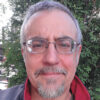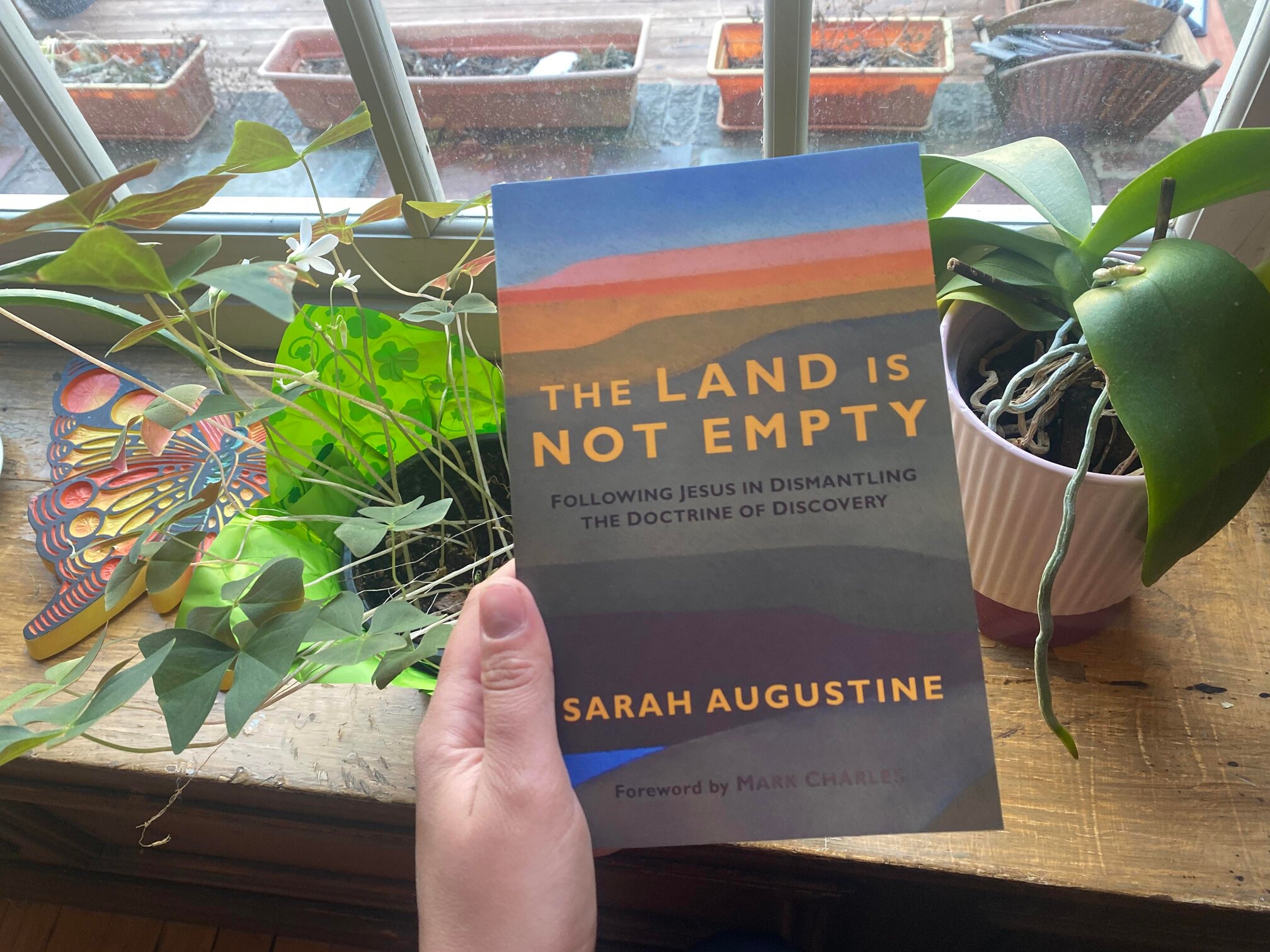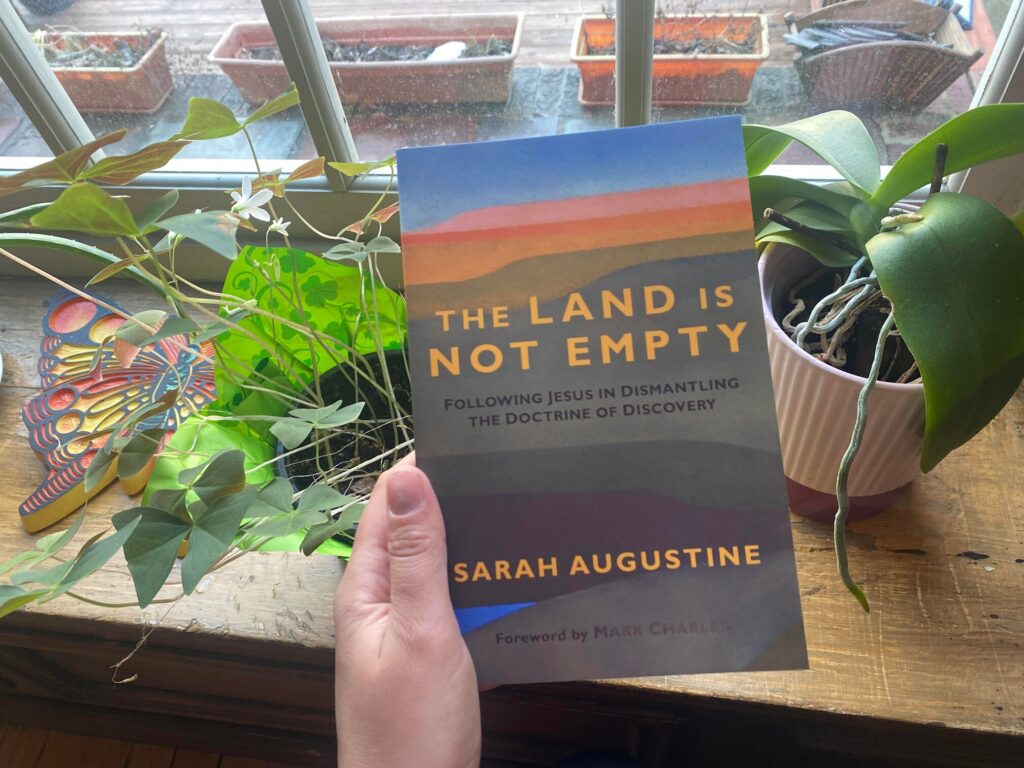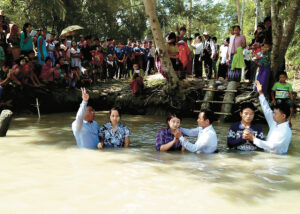Since this is the Spring Books and Resources issue of Canadian Mennonite, let me recommend a book that speaks directly to some of the headline news of the past few weeks. No, it’s not something on Ukraine. It’s a book on mission.
A monster challenge is how institutions respond to issues of social injustice and oppression in which an institution is deeply involved. Churches in North America and elsewhere have been heavily, and rightfully, criticized for their roles in colonialism. Indigenous-settler relations in Canada took an interesting turn earlier this month with an apology from the Vatican for the “deplorable abuses” at residential schools.
I hope that we are past the time when Mennonites feel they didn’t have a part in, and do not benefit from, those injustices. In The Land is Not Empty, author Sarah Augustine—committed both to her Christian faith and her Indigenous heritage—challenges Christians of all denominations to “dismantle” the 500-year-old Doctrine of Discovery that forms a crucial legal and cultural foundation in settler-colonial countries.
As Augustine explains, “The Doctrine of Discovery is a theological, philosophical and legal framework dating to the 15th century that gave Christian governments moral and legal rights to invade and seize Indigenous lands and dominate Indigenous Peoples.” (Ever wonder why so much of Canada is called “Crown land”?)
Laws and social norms gave flesh to the doctrine. Territory newly “discovered” was now available for morally “good” uses of “empty land”; that is, for settlement and resource extraction. While it is usually discussed in the past tense, it is not a relic of history.
Augustine argues forcefully that the Doctrine benefits each one of us. She challenges herself, too, even describing her own family’s efforts to eliminate involvement in a system that she sees as deeply exploitative. We are all part of, and have our money in, systems that profit at the expense of marginalized peoples.
For example, Canada’s laws allow Canadian mining companies to follow weaker rules on human rights and environmental protection outside of the country. Augustine’s solutions to “dismantling” are not only about changing some laws or issuing an apology. Dismantling the doctrine follows Jesus, such as in the parable of the rich man who asked what more he should do, and was told to “sell all you have and [really] follow me.”
Near the end of the book, Augustine asks what would it look like for Indigenous Peoples to send missions to mainstream Canadian society, to Wall Street, and to fossil-fuel and mining companies. Drawing on Indigenous cosmologies present in her own Tewa culture, and among the people of Suriname, where she did environmental-health work, she describes the mission as one about restoration of creation, renewed focus on relationships, reduction of corporate capitalism, less individualism and more community. Sound like shalom?
A core scriptural basis of the Doctrine of Discovery is the Israelite conquest of Canaan after the escape from Egypt. An alternative form of the Christian message is about a Jesus who taught and lived for liberation for the oppressed in the here and now. The struggle is to repudiate the first form of Christian mission and internalize the latter. That must go beyond symbolic forms of solidarity. May God help us to humbly, but deliberately, challenge each other as Jesus-followers and churches to put money and lives in line with beliefs and talk.
Randolph Haluza-DeLay lives in Toronto, on the land of the Haudeno-saunee, Anishinabeg, Wendat, and Mississaugas of the Credit First Nation.
Read more Mind and Soul columns:
A culture of peace
CPT changed its name
On evangelization
It’s about flourishing
Reading is (mostly) good









Leave a Reply
You must be logged in to post a comment.